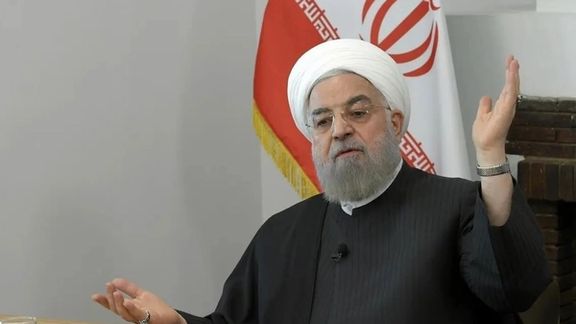Ex-Iranian President Criticizes Government's Stance on JCPOA

Former Iranian President Hassan Rouhani criticized the government's approach to the Joint Comprehensive Plan of Action (JCPOA).

Former Iranian President Hassan Rouhani criticized the government's approach to the Joint Comprehensive Plan of Action (JCPOA).
In a letter to the Guardian Council, he asserted that the Raisi Administration "neither has the capability to withdraw from the JCPOA nor the will to revive it."
Rouhani also lamented that the opportunity for reviving the JCPOA at the end of his term was thwarted by "the parliament's sabotage and the support of the Guardian Council."
President Ebrahim Raisi has recently echoed sentiments against expanding the nuclear deal by Rouhani, saying “Some wanted to announce in the country that we must reduce the shadow of war, negotiate on our missiles and military capabilities, and put JCPOA 2 and 3 on the table. However, the leadership said, 'What happened to JCPOA 1 that you want to put 2 and 3 on the table, and missiles are not negotiable."
The JCPOA, achieved in Vienna on July 14, 2015, involves Iran and major world powers including the five permanent members of the United Nations Security Council. Under the agreement, Iran consented to reduce its nuclear capabilities in exchange for relief from economic sanctions.
However, the US withdrawal from the agreement in 2018 under President Donald Trump and the subsequent imposition of sanctions strained relations and crippled Iran’s economy.
Despite international scrutiny and ongoing diplomatic efforts, Iran has continued to enrich uranium up to 60-percent purity, a level that many outside observers argue has potential military applications.
On Tuesday, Rafael Grossi, the chief of the United Nations atomic watchdog, criticized Tehran for its "completely unsatisfactory" cooperation after his recent visit to Iran. During his trip, he had pressed Iranian leaders to implement "concrete" steps to resolve issues surrounding their nuclear program.
It came weeks after Grossi said Iran was dangerously close to making nuclear weapons.